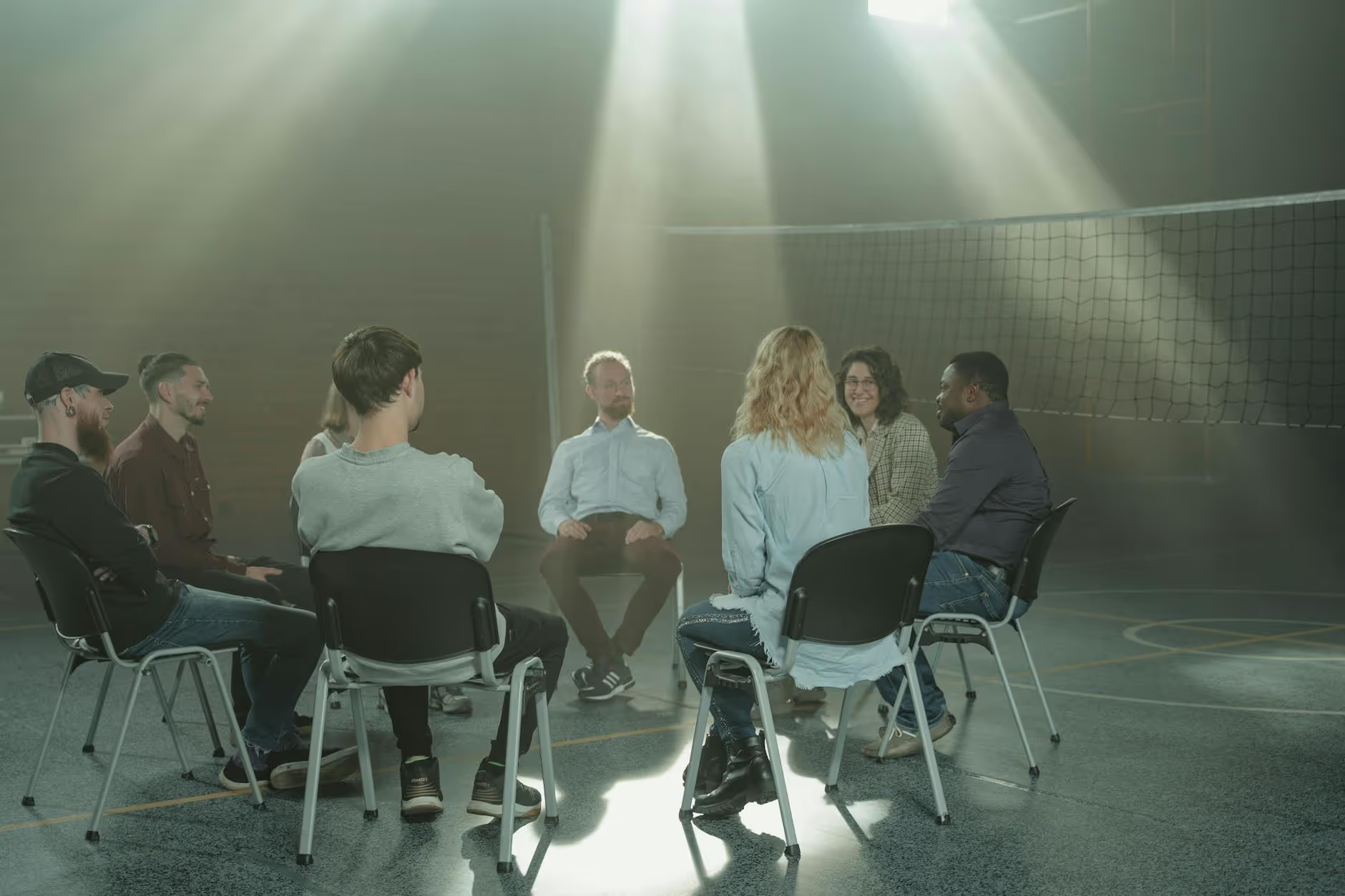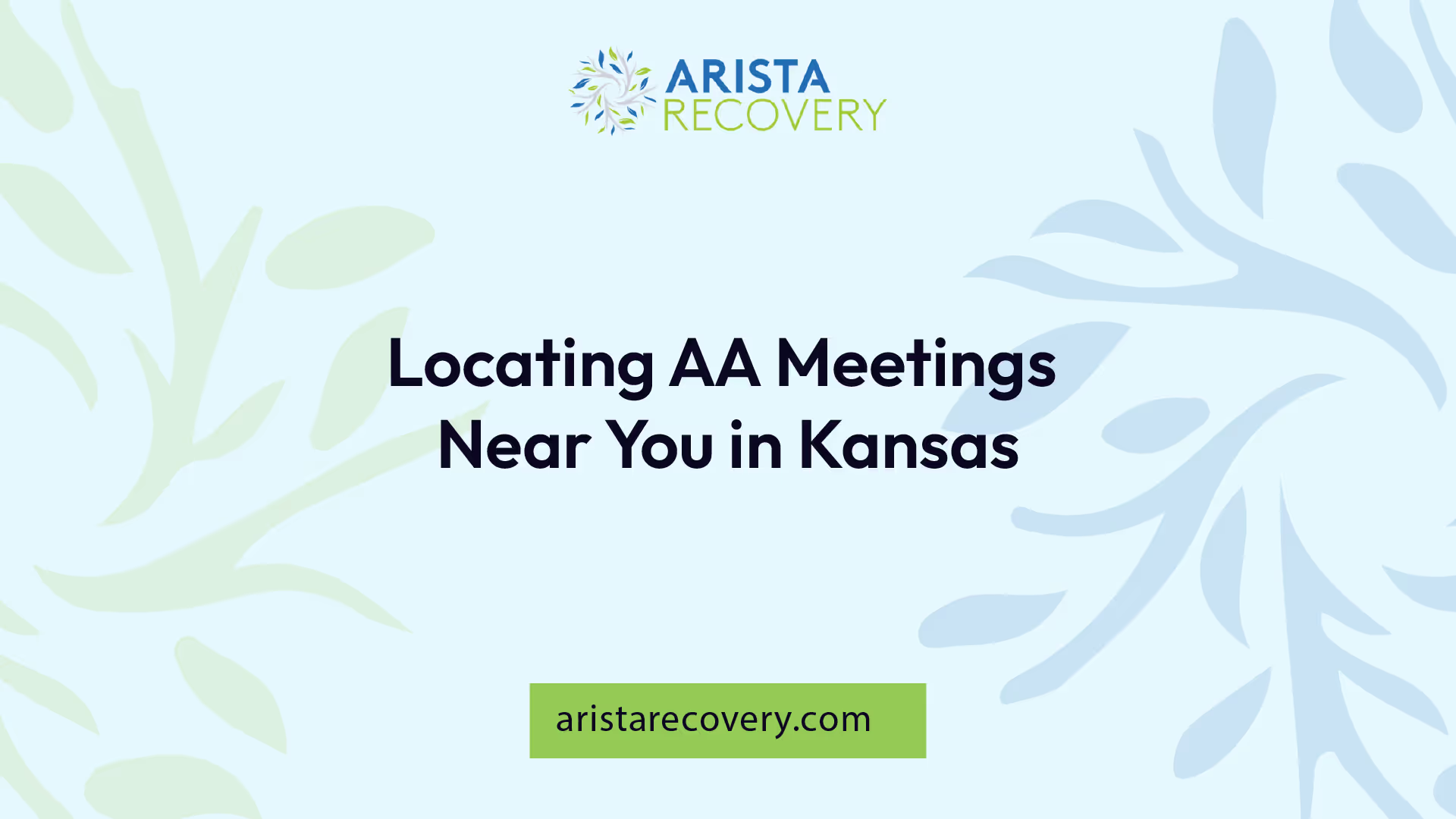Locating AA Meetings Near You in Kansas


Accessing AA Meetings Near You
Finding local support in addiction recovery can be crucial for individuals seeking help in Kansas. Several tools and options are available to easily locate Alcoholics Anonymous (AA) meetings nearby.
Utilizing the Meeting Guide App
One of the most effective methods to find AA meetings is by using the Meeting Guide App. This app is available for both iOS and Android smartphones. It provides individuals with the ability to locate A.A. meetings and resources in their vicinity. The data included in the app is sourced from A.A. service entities, ensuring that the information is accurate and reliable.
Users can perform searches based on their town or postcode, allowing them to find the nearest available meetings. The app also allows sorting meetings by date and time, making it easier to schedule attendance around personal commitments.
Exploring Zoom Meetings
For individuals who prefer attending meetings from the comfort of their homes, Zoom meetings provide a viable alternative. Accessible through the AA website, users can search for online meetings sorted by the soonest ones based on their selected day and time period. Each meeting description provides essential details, including meeting passwords when required [1]. This allows participants to connect with support groups without geographical limitations.
Here’s how to access Zoom meetings effectively:
Steps to Access Zoom Meetings1. Visit the AA website or the designated online meeting platform.2. Click the "Zoom" button associated with the meetings.3. Check the meeting descriptions for attendance details including passwords.4. If necessary, contact the group directly for additional information.
These digital options ensure individuals can stay connected to support during their recovery journey. For further engagement options, individuals might also explore other avenues such as online recovery groups or addiction recovery support groups.
Types of AA Meetings
Understanding the various types of Alcoholics Anonymous (AA) meetings is essential for individuals seeking support in their recovery journey. These meetings can generally be categorized into two main types: open and closed meetings. Additionally, common formats within these categories play a significant role in the overall meeting experience.
Open vs. Closed Meetings
AA meetings are typically classified as "open" or "closed." Both types focus on discussions surrounding recovery from alcoholism.
Meeting TypeDescriptionOpen MeetingsFor anyone interested in learning about alcoholism and AA.Closed MeetingsExclusively for individuals who identify as having a drinking problem.
For more information about different types of meetings, individuals can refer to AA's official resource.
Common Meeting Formats
The format of AA meetings is determined by the members running the meeting. A common structure includes discussions led by group members, who select topics based on AA literature, such as the Big Book, Twelve Steps and Twelve Traditions, and Daily Reflections [2].
Other formats may include:
By understanding the distinctions between open and closed meetings, as well as the various formats, individuals can find the AA meetings that best suit their needs. For personalized support, there are also tailored options like sober living communities and addiction recovery support groups available in Kansas.
Structure of AA Meetings
Understanding how Alcoholics Anonymous (AA) meetings are structured can help individuals feel more prepared and comfortable attending. Meetings have specific protocols and an inclusive environment to facilitate recovery.
Meeting Protocols
AA meetings typically begin with an introduction, where the group welcomes attendees and outlines the purpose of the gathering. Participants may be introduced using first names only to foster a sense of anonymity and support. Following this, there may be readings from foundational texts like the Big Book or Twelve Steps and Twelve Traditions to set the tone and context for the meeting.
Meetings usually conclude with a moment of silence, a prayer, or the recitation of the Responsibility Statement, reinforcing the collective commitment to recovery. It’s common for discussions to be led by a member, using either group-specific formats or selecting topics based on AA literature. Participants are encouraged to focus discussions on matters related to recovery from alcoholism, creating a safe and encouraging space for sharing experiences and insights [2].
Meeting ComponentDescriptionIntroductionWelcomes attendees and states the purpose of the meeting.ReadingsCommon texts like Big Book or Twelve Steps and Twelve Traditions.DiscussionLed by a group member, focused on recovery topics.ConclusionMoment of silence, prayer, or reciting the Responsibility Statement.
Inclusivity in Meeting Attendance
AA meetings welcome individuals from various backgrounds, including those referred by court programs and treatment facilities. The organization's voluntary nature emphasizes that attendance is a personal choice, creating an atmosphere of support and understanding. While some groups may request proof of attendance for referral sources, the decision to provide this is at the discretion of individual AA groups [2].
AA values inclusivity, allowing anyone interested in recovery to join. There is no prerequisite for attendance, and all are encouraged to participate, shared experiences resonate with others on similar journeys. This inclusive approach fosters a strong sense of community among members and helps in building connections essential for recovery.
For individuals looking for various support options, resources like sober living communities, online recovery groups, and addiction recovery support groups can be beneficial complements to in-person meetings.
Benefits of Regular Attendance
Support and Social Interaction
Regular attendance at Alcoholics Anonymous (A.A.) meetings provides a crucial support network for individuals navigating their sobriety journey. Members often share their experiences, discussing what they were like, what happened, and what they are like now in relation to their recovery. This shared narrative creates a nurturing and welcoming environment for newcomers.
In addition to emotional support, these gatherings foster social interaction among members. Building connections with others who understand their struggles can be incredibly comforting. A supportive community can help alleviate feelings of loneliness and isolation often experienced in recovery. Engaging with peers in a friendly setting encourages individuals to maintain their sobriety while also enjoying their lives.
Importance of Consistency
Consistency in attending A.A. meetings is vital for recovery. Many participants report that their sobriety remains stronger when they regularly attend meetings. This principle is encapsulated in the common encouragement: “Keep coming to meetings”. Regular engagement allows individuals to deepen their understanding of the program and its benefits, especially essential for newcomers seeking guidance and reassurance during their initial recovery phases.
Members emphasize that the quality of sobriety can decline if they stay away from meetings for an extended period. Ongoing attendance helps reinforce commitment to personal goals and shared responsibilities within the community. For newcomers, attending a higher number of meetings during the initial weeks and months can significantly enhance their grasp of the program and its benefits.
By integrating both support and consistency into their recovery plan, individuals can build a solid foundation for lasting sobriety. For those looking to further their support network, exploring resources such as online recovery groups or various addiction recovery support groups may also be beneficial.
Resources Beyond Meetings
Individuals seeking additional support in their recovery journey can find valuable resources beyond regular AA meetings. Two key resources are the General Service Office (GSO) and connections with international groups.
General Service Office (GSO)
The General Service Office (GSO) of Alcoholics Anonymous serves as a central hub of communication for A.A. groups throughout the U.S. and Canada. The GSO provides support and facilitates the exchange of A.A. experiences. This organization functions as an important resource for those looking for AA meetings near me, information, and tools for recovery.
The GSO also offers a Visitors Center that welcomes guests Monday through Friday from 9 a.m. to 3 p.m. Visitors can participate in guided tours at 10 a.m., 11 a.m., and 2 p.m., each lasting about 45 minutes. These tours give insight into the history and workings of A.A. and how it continues to support those in recovery [4].
For those needing further information or resources, the GSO can be contacted by mail at:
General Service Office
P.O. Box 459
Grand Central Station
New York, NY 10163
This direct line of communication opens pathways for assistance and guidance throughout the recovery process.
Connecting with International Groups
A.A. is a global organization with a presence in approximately 180 countries. This widespread network allows individuals to connect with A.A. groups around the world, providing diverse opportunities for sharing experiences and support. Those looking for local meetings or information can contact the appropriate regional contacts listed for the U.S., Canada, and international regions. This ensures access to resources no matter where one is in their recovery journey [4].
Connecting with international groups not only offers different perspectives on recovery but also fosters a sense of belonging among individuals facing similar challenges. For additional connections, individuals may also explore online resources such as online recovery groups and addiction recovery support groups to complement their AA meeting attendance. Additionally, engaging in sober social activities can help maintain a healthy, supportive network.
Tailored Meeting Options
When searching for AA meetings near me, individuals in Kansas can benefit from a variety of tailored meeting options designed to meet their specific needs. These include demographic-specific meetings and substance-specific support groups.
Demographic-Specific Meetings
Demographic-specific meetings are designed to cater to individuals who share similar backgrounds or experiences, such as gender or sexual orientation. These meetings provide safe spaces for members to discuss their unique challenges related to addiction treatment and recovery. For example, individuals may find:
Meeting TypeDescriptionMen's AA MeetingsFocus on the unique recovery challenges faced by men.Women's AA MeetingsAddress the specific needs and experiences of women.LGBTQ AA MeetingsOffer a supportive environment for LGBTQ individuals.
These tailored meetings allow participants to share their stories and connect with others who understand their specific struggles, improving their recovery experience [5].
Substance-Specific Support
For individuals with a history of using multiple substances, substance-specific support groups can provide focused assistance. In addition to standard AA meetings, there are 12-step-based meetings available that address the unique challenges faced by those dealing with polysubstance abuse. This specialized approach can be beneficial in providing deeper understanding and targeted support.
Substance TypeMeeting FocusAlcohol UseTraditional AA meetings for alcohol recovery.Polysubstance UseMeetings that discuss challenges related to multiple substance use.
It is also recommended for individuals facing polysubstance disorder to seek professional treatment alongside involvement in support groups. Connecting with both demographic-specific and substance-specific groups can enhance an individual's recovery journey. Individuals might also explore additional resources such as addiction recovery support groups or online recovery groups to find more options that suit their needs.
References
[2]:
[3]:
[4]:
[5]:
When mental health challenges and addiction intersect, it can feel isolating. At Arista, we offer compassionate, evidence-based, and trauma-informed care to help you heal, grow, and move forward.
You’re not alone in this.
When mental health challenges and addiction intersect, it can feel isolating. At Arista, we offer compassionate, evidence-based, and trauma-informed care to help you heal, grow, and move forward.
Support that moves with you.
You’ve taken a brave first step. At Arista Recovery, we’re here to help you continue with best-in-class care designed for long-term healing and support.
.webp)






